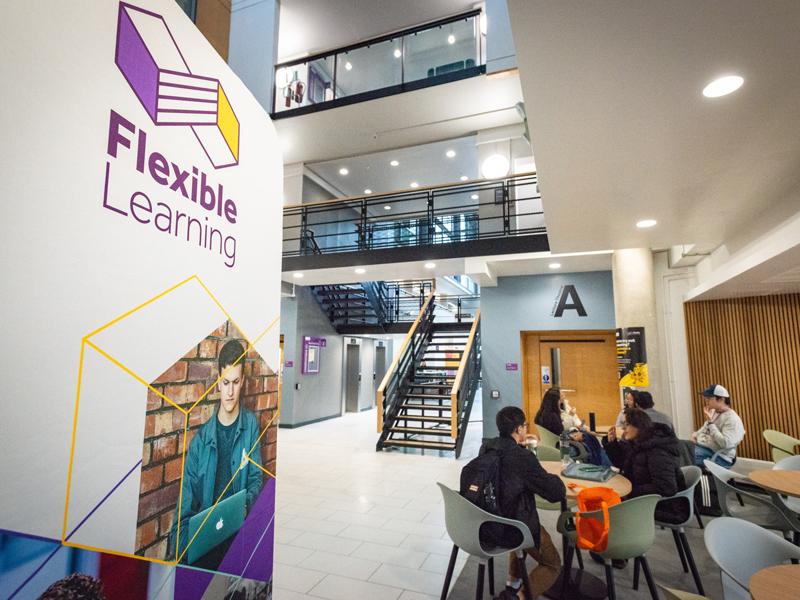The pace of technological advancement, especially with the exponential rise of AI in recent years, means employees are at a significant disadvantage if their skill sets stagnate. The University of Manchester, located in a UNESCO City of Lifelong Learning, is an institution leading the charge for learning that is flexible, inclusive and accessible to all.
Greater Manchester’s Digital Blueprint sets out its plan to be a globally leading city in digital innovation. To achieve this, it needs to build capacity in the system by retaining talent in the city and support upskilling and reskilling into digitally focused roles.
To support this vision, the University of Manchester will significantly diversify its teaching and learning offering over the next few years to include greater delivery of short course pilots, including microcredentials, and professional development initiatives. Supporting the delivery of the Greater Manchester skills agenda by building digital skills within businesses, the university also works strategically with business partners to facilitate lifelong and professional learning. Examples include: the provision of a course on the use of generative AI in complex organisations, designed collaboratively with biopharmaceutical giant AstraZeneca; a course focused on net zero in fashion, developed with grocery retailer Tesco; and a course designed with information and communication technology leader Fujitsu on digital sustainability.
Grounded in pace, place and pathway, the University of Manchester’s Flexible Learning Programme embraces hybrid learning and has equipped part of its campus with a range of flexible teaching spaces, including a suite of virtual reality pods, a hyflex teaching space and a technology-free teaching space. This physical space development is complemented by the programme’s investment in effective digital learning environments, granting students the freedom to learn in a way that fits around their schedules and responsibilities.
“Listening to the needs of our students and staff has pushed us to upgrade our central learning environment,” says Caroline Bowsher, academic theme lead for the digital learning environment at the University of Manchester. “When Canvas is rolled out across the university in September, we expect our people to benefit from an integrated, interconnected, inclusive and accessible digital infrastructure that supports learners at whatever stage they are at in their education journeys. Canvas increases the university’s flexibility to deliver and repurpose teaching in a variety of formats, while staff are empowered to use digital tools to improve their resources for effective learning.”
The availability of more online courses means more learners get a taste of the university’s offering, while new courses can be stacked together and completed over a flexible timeline to form larger qualifications. The university is in the process of developing a portfolio of online microcredentials and short (non-credit bearing) courses, which will equate to around 50 hours of learning each. “We are developing our own framework for the design and delivery of microcredentials and are working together with the Universities Association for Lifelong Learning in the hopes of developing a UK-wide common framework to support sharing and standardisation of these products,” says Ang Davies, academic theme lead for lifelong learning at the University of Manchester.
In today’s fast-paced world, it is more important than ever that anyone who wants to learn can. And in a digital era that demands agility, creativity and digital proficiency, universities must rise to the challenge to offer individuals exactly what they need to succeed.
The University of Manchester’s Flexible Learning Programme has laid the foundations for the university to become an example for other institutions looking to become a learning partner for life, whether someone is seeking short courses for skills development, on-campus full-time degree programmes, or the flexibility of part-time online postgraduate learning. “We are in a better place than ever before to make this happen, while partnering with Canvas to provide the digital ecosystem to make these ambitions a reality,” Davies says.


comment